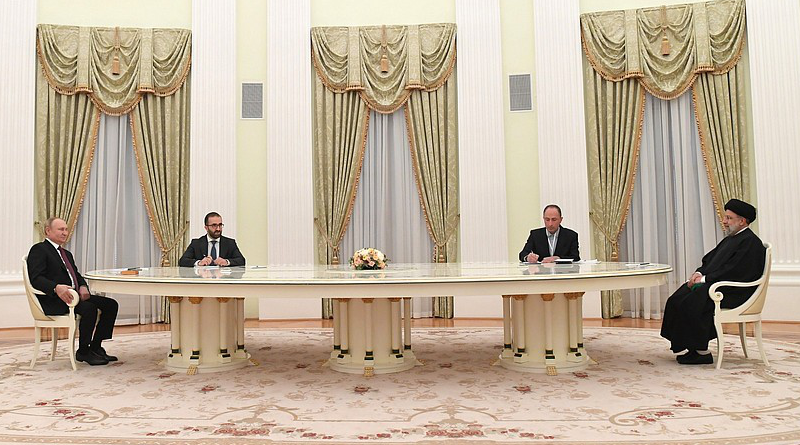
Russian President Vladimir Putin is relying on Iran to supply weapons for his war in Ukraine, which is a sign of his isolation, Pentagon Press Secretary Air Force Brig. Gen. Pat Ryder said during a news conference.
Ryder could not confirm news reports that Russia has asked Iran for ballistic missiles and other capabilities, but he did confirm that Iran has provided hundreds of unmanned aerial vehicles to Russia. And Russian forces have used them to attack Ukraine.
“Iran has provided Russia with UAVs, which we anticipate they’ll likely seek more of those,” the general said. “We do have concerns that Russia may also seek to acquire additional advanced munition capabilities from Iran — for example, surface-to-surface missiles — to use in Ukraine. If we see Russia employing such capabilities on the battlefield, we’ll certainly do what we can to illuminate that.”
This “continued collusion” between Russia and Iran is disturbing, officials said.
It also offers insight into the state of Russian supply chains and the cost of its illegal war on Ukraine. “I think it does speak to the state of Russia’s munitions capability,” Ryder said. “We’ve said before that we assess that they continue to experience supply shortages when it comes to munitions — particularly guided munitions.”
The fact that Russia must seek munitions from Iran — already an international pariah — “says a lot about the kind of company they keep and where they stand in the world right now in terms of isolation,” he said.
Again, Ryder stressed that the United States, its allies and partners are doing all they can to get Ukraine additional air defense capability.
The first National Advanced Surface to Air Missile Systems will be delivered to Ukraine “very soon.” Ukrainian forces are already receiving training in the air defense system, which would be effective against any number of airborne targets, including drones, jets, helicopters and more.
Partners are working to help Ukraine integrate the diverse air defense systems that have received from a number of countries, the general said. “I would submit to you they’ve done a very good job of integrating air defenses, particularly for example, when it comes to taking down a significant percentage of the Iranian drones,” he said. “But again, that’ll be an area that we’ll continue to work with them on.”
